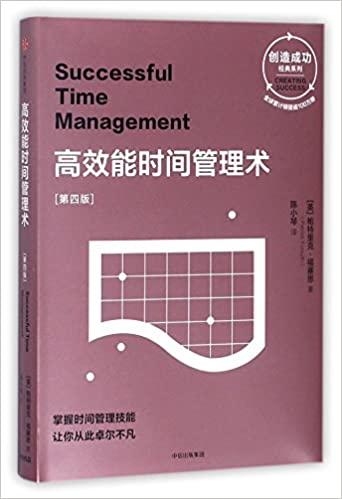Question
Penn and Pennix pointed out that many businesses transactions depend on the proper creation and maintenance of recorded information. The medium on which the recording
Penn and Pennix pointed out that many businesses transactions depend on the proper creation and maintenance of recorded information. The medium on which the recording of information could be done may be paper, microfilm, audiotapes, videotapes, photographs, slides or any computer readable medium, such as computer tapes or disks, compact disks and optical disks. An organizations management of its records is the corporate secret weapon and the winning strategy that give the organization their competitive edge.
Yet few organizations, including universities, pay attention to the management of this corporate resource, Even though universities are continually being called upon to function in a business-like manner in order to be self sustaining and to remain competitive, they overlook the enormous advantages that proper records management practices could contribute to the achievement of their objectives.
The primary purpose of records management is to ensure that all the records that provide the evidence that the organization is carrying out its mandate are captured. Records are the basis for organizational accountability, complying with legislative requirements, and the development of corporate memory for the University. For records to be able to do that they must be complete, accurate and reliable evidence of the transactions conducted.
The Council on Higher Education pointed out that higher education information systems in South Africa were inadequate. Proper records management could help universities to manage their information, efficiently fulfill their mandate, protect them from litigation preserve their corporate memory and foster accountability and good governance. The information contained in university records needs to be managed according to a methodical approach to enhance the effectiveness and efficiency of the universities in carrying out their mission. As universities carry out their mission they create various records.
The core business of universities is learning, teaching, research and community development. The university of Kwa-Zulu Natal, in articulating its mission, states that it is committed to academic excellence, innovation in research and critical engagement with society (university of KwaZulu Natal 2005). Carrying out these activities produces records, which provide evidence that the University is carrying out its statutory functions. If such records are not properly managed or misplaced, then valuable evidence would be lost forever. Proper management means establishing systematic controls at every stage of the records life cycle, by established principles and accepted models of records management.
The University of Malborne defines records management as the capturing and maintaining of accurate, complete, reliable, and useable documentation of activities of an organization to meet legal, evidential, accountability and social/cultural requirements. Records pass through several phases in their life cycle. The primary purpose of records management programmed is to monitor records, regardless of type or format, to ensure that they pass efficiently, and at a minimum cost, through the creation, use, inactive storage and disposal or permanent retention phases.
In this light, the proper management of university records at a South African Institution becomes very important. Universities might find themselves in an embarrassing position if requested records are not found as a result of poor records systems where, as Taylor (2000:240)notes, litigation by aggrieved parties cannot be ruled out. Recently, a former University of Durban Westville student made a court application demanding to see his examination scripts (UKZN rejects marks allegations 2004).
Although the student eventually lost his case as the Pietermaritzburg High Court, the case demonstrates the possible consequence of not providing information timeously. Organizations that manage their records well reap immediate benefits in terms of being able to utilize all available information resources for competitive advantage. Kemoni and Wamukoya (2000:125) state that effective records management systems provide the information required for the proper functioning of organizations including universities. On the other hand, poor records can be risky to an organization.
Q2 - Critically unpack the University of KwaZulu Natal guidelines that can be applied to systematically integrate training records that have been manually captured into a computerized system.
Step by Step Solution
There are 3 Steps involved in it
Step: 1

Get Instant Access to Expert-Tailored Solutions
See step-by-step solutions with expert insights and AI powered tools for academic success
Step: 2

Step: 3

Ace Your Homework with AI
Get the answers you need in no time with our AI-driven, step-by-step assistance
Get Started


